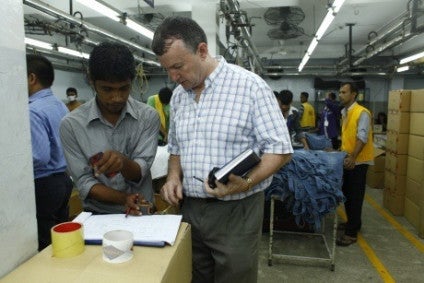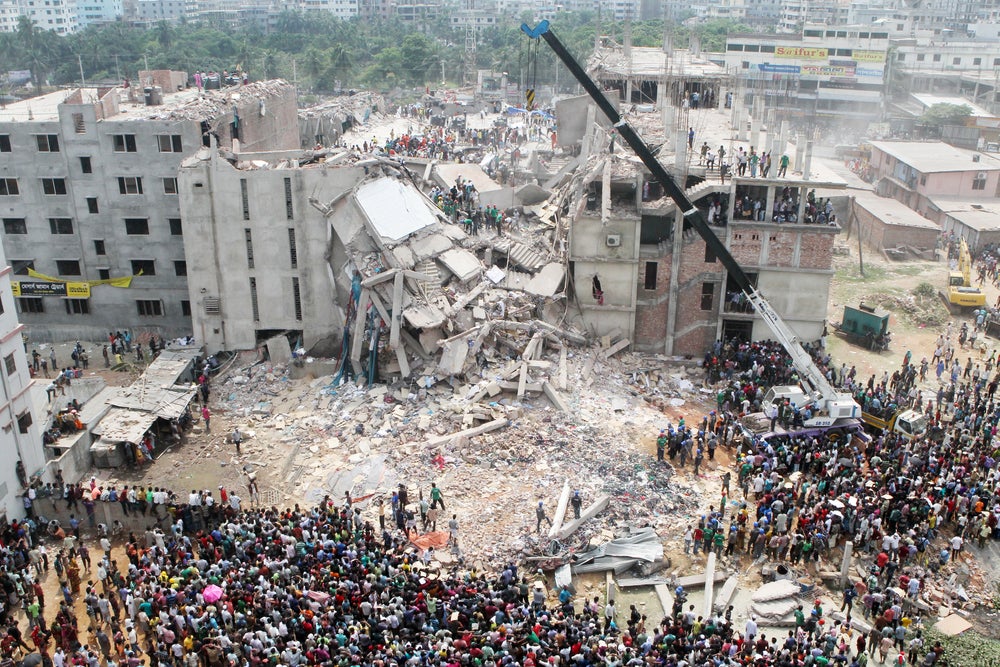
French brands and retailers sourcing from Bangladesh have united to urge the country’s government to extend the work of the Bangladesh Accord, days before a decision on its future is due.
The five-year pact, which expired in May 2018 but was extended to complete remaining safety fixes, is due to be handed over to the government’s Remediation Coordination Cell (RCC) to oversee factory building safety and remediation. However international stakeholders fear the RCC is not yet prepared to take on the responsibilities of the Accord’s inspection programme.
The Accord challenged a High Court directive asking it to end all activities in the country on 30 November. Last month a decision on its future was pushed back to 21 January – the fourth time it was adjourned by the Supreme Court of Bangladesh.
So far, the safety activities of 100 Accord-monitored ready-made garment (RMG) factories in Bangladesh have been handed over to the government’s Department of Inspection for Factories and Establishments (DIFE), the body that oversees the RCC.
Now, the Initiative for Compliance and Sustainability (ICS) – a group of 43 multinational brands and retailers collaborating to share audits, knowledge and best practices along their global supply chains — is calling on the government to extend the role of the Accord.
See Also:
Mainly comprising French firms including Auchan, LaRedoute, Naf-Naf, and Galeries Lafayette and 16 others that source from Bangladesh, the ICS has written a letter to the Bangladesh Prime Minister Sheikh Hasina, highlighting the “substantive role” the Accord has played in improving the factories’ safety and enhancing workers’ conditions.
How well do you really know your competitors?
Access the most comprehensive Company Profiles on the market, powered by GlobalData. Save hours of research. Gain competitive edge.

Thank you!
Your download email will arrive shortly
Not ready to buy yet? Download a free sample
We are confident about the unique quality of our Company Profiles. However, we want you to make the most beneficial decision for your business, so we offer a free sample that you can download by submitting the below form
By GlobalDataThe creation of the independent RCC is commended as “a foundation stone for an effective national safety monitoring” but “there is still more to be done to complete the remediation in factories,” adds the letter.
“Less than half of all Accord-covered factories have completed the installation of adequate fire detection systems and less than 60% have completed structural retrofitting, based on approved detailed engineering assessments (DEAs).
“Having closely monitored the ongoing transition process from the Accord to the RCC, including the recent succession of hearings and restraining orders issued by the Bangladesh High Court, as well as the publication of several reports investigating the state of readiness of the newly founded RCC to take over Accord missions, we are concerned that all conditions that would allow for a smooth, safe and efficient shift from one system to the other, are not currently met.”
In addition, the ICS adds it believes further efforts are necessary to absorb the work of the Accord into the RCC – and that it is in the best interest of all parties that the RCC be provided with further opportunity and time to successfully develop.
“We note that there is a clear benefit to everyone; Bangladesh, the global ready-made garment industry and workers in local factories to continue and deepen this successful partnership that has delivered such fundamental positive change and we fear that the safety of Bangladesh ready-made garment workers could be compromised if an effective structure is not in place for complete handover of responsibility.
“We respectfully call upon all the parties involved to work together, to take all necessary steps to find solutions to the current challenges facing this partnership in order that the Accord may continue to contribute effectively to the growth and development of the sector in Bangladesh and to assist the eventual role of the RCC in taking over the leadership of this work under the guidance of the Transition Monitoring Committee.”







